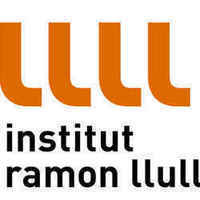1ST INSTITUT RAMON LLULL WORKSHOP ON BILINGUALISM

Posted in Events | Tagged bilingualism
“Bilingualism” has long been a provocative term in Catalonia, where the concept is more often treated as ideological dogma than as a description of linguistic fact. This phenomenon is not peculiar to Catalonia; Joshua Fishman observed in the 1980’s the distinctly negative charge of all things “bilingual” in mainstream discourse in the United States. In contemporary Catalonia, two highly charged discourses of bilingualism dominate. One comes from proponents of an official bilingual policy, most often in contrast to Catalan normalization policies. The other comes from Catalanist critics of bilingualism influenced by language conflict theory as first developed by Valencian sociolinguists Lluís V. Aracil and Rafael Ninyoles in the 1960’s. Public contention over these views erupted in the 2016 controversy around the Koiné group’s manifesto against bilingualism. This talk will present a critical overview of these two discourses and their manifestations in the Koiné debate. It will consider what it means for engaged Catalan sociolinguistics to have eschewed the concept of bilingualism, and whether its recuperation is desirable and feasible in the present context.
Kathryn Woolard is professor emerita of anthropology at the University of California, San Diego, a fellow of the American Academy of Arts and Sciences, and recipient of the 2016 International Ramon Llull Prize for her contributions in more than thirty-five years of ethnographic and sociolinguistic research on Catalonia. She is the author of Double Talk; Bilingualism and the Politics of Ethnicity in Catalonia (Stanford, 1989) as well as Singular and Plural; Ideologies of Linguistic Authority in 21st Century Catalonia (Oxford, June 2016), which received the Edward Sapir Prize from the Society for Linguistic Anthropology in 2017. Woolard also co-edited foundational volumes in the study of language ideologies: Ideologies of Language; Practice and Theory (Oxford, 1998) and Languages and Publics (St. Jerome 2001/Routledge 2014).
Abstract: During the last decade we have accrued important knowledge regarding the cognitive and neural mechanisms involved in the hard process of learning a second language, being these studies essential to understand how the brain of bilinguals is sculpted. However, it is still unknown which are the neural process underlying the human drive to learn a language and what maintains in time this effortful activity. Recent theoretical models have proposed that during human evolution, emerging language-learning mechanisms might have been glued to phylogenetically older subcortical reward systems, reinforcing human motivation to learn a new language. Supporting this hypothesis we recently showed that adult learners exhibited robust functional MRI activation in core reward-pleasure centers (ventral striatum) when successfully learning the meaning of new words. These results provided the first neural evidences of the important role of reward and motivation during language learning and supporting the idea that the strong coupling between neocortical language regions and the subcortical reward system provided a crucial advantage in humans for successfully acquire linguistic skills. Furthermore, we recently showed that successful language active learning (without the presence of external feedback) boosted also the activation of reward-memory circuits [midbrain dopaminergic circuits and the hippocampus]. Thus, intrinsic driven learning seems to be strongly coupled with subserving reward-memory processes needed to ensure future recall success. We believe this intrinsically motivated-learning mechanism might be crucial for boosting formation of long-term memories, specially in our everyday lives, as we continually acquire new knowledge in the absence of any obvious immediate reward. A key question for the future is whether tapping into intrinsically rewarding forms of learning might be a more effective educational strategy than relying on external feedback and incentives. A second critical issue is to which extent the implication of this reward-learning intrinsic mechanisms could predict the success of the process of learning a new language (considering the contextual and sociolinguistic factors surrounding the learning experience). This could be crucial for improving the design of educational programs – for example, in teaching foreign languages – and also for improving the recovery of verbal skills lost after stroke.
Antoni Rodriguez-Fornells (PhD University of Barcelona post-doc University of Magdeburg ). His main topics of research have been bilingual language processing, executive functions and the brain correlates of error monitoring. In 2002, he got a “Ramón y Cajal” research position from the Spanish Government and afterwards joined ICREA as a Research Professor. Since then, he has created an interdisciplinary research group (Cognition and Brain Plasticity Unit, CDBU), at ICREA-IDIBELL-UB devoted to the study of learning process and brain plasticity effects in healthy and brain damaged patients. The group is located at the Hospital of Bellvitge – IDIBELL biomedical institute. His research is inherently interdisciplinary and requires expertise in interfacing research fields as brain plasticity, brain development and learning and memory mechanisms. Recently, his main research has focused on the investigation of the neural mechanisms involved when adults and infants learn a new language (and especially its interface with executive functions and the reward system). Recently, this approach has been applied to understanding the learning mechanisms preserved in aphasic people.
Friday, November 2, 2018 at 2:00pm to 5:00pm
Regents Hall, Baker Scholars Room
